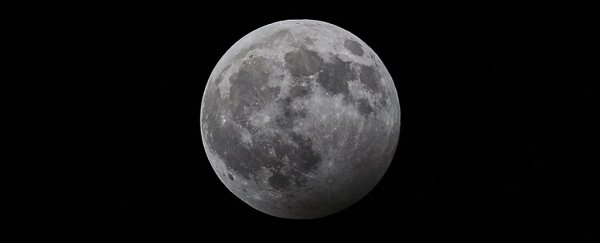June's full moon – also known as the "strawberry moon" because it comes during strawberry season – might look a little darker than normal on Friday.
That's because many parts of the world were able to see a celestial event known as a partial penumbral eclipse, when part of the Moon moves through the Earth's outer shadow. This makes a chunk of the Moon appear dimmer.
The strawberry moon eclipse was visible above Asia, Australia, Europe, and Africa. People in the US couldn't see it, but can watch the event online below.
The Moon was at its fullest on Friday at 3:12 pm ET, and the Virtual Telescope Project livestreamed the eclipse from Italy starting at 3 pm ET, as the moon dimmed above Rome's skyline.
You can watch below.
The Moon will appear full for about three days, from early Thursday morning into early Sunday morning.
While the partial penumbral eclipse won't have any major impact on Earth, it can affect some spacecraft.
"For spacecraft at the Moon such as the Lunar Reconnaissance Orbiter, the reduction in solar power is noticeable," NASA wrote in a release about the strawberry moon.
The strawberry moon is also known as the 'mead moon' or 'honey moon'
June's full moon will be the last of the spring.
The strawberry moniker comes from the Algonquin tribes. An old European name for this final spring full moon, meanwhile is the "mead moon" or the "honey moon," since people considered honey to be the sweetest during June. (Mead is an alcoholic drink made of fermented honey.)
During the middle ages, many couples in Europe also got married in June (as plenty still do today), so that might be where the tradition of calling the first month of marriage the "honeymoon" comes from.
This article was originally published by Business Insider.
More from Business Insider:
